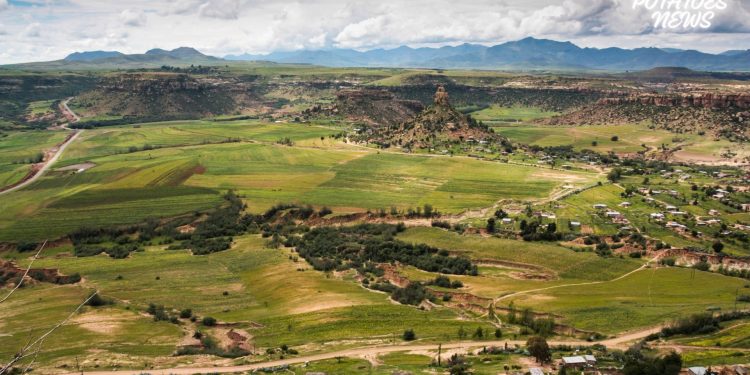Lesotho, a small landlocked country in Southern Africa, is facing severe impacts of climate change that threaten its fragile ecosystem and the livelihoods of its rural population. Despite its negligible contribution to global greenhouse gas emissions, Lesotho is on the frontline of climate change impacts, exacerbated by its unique topography and socio-economic conditions.
Lesotho’s climate is generally temperate with alpine characteristics, marked by hot summers and very cold winters with significant temperature fluctuations. The country’s mountainous terrain and erratic rainfall patterns contribute to a delicate ecosystem. High aridity and intense drought periods are leading to the loss of biodiversity, deterioration of rangelands, and reduced agricultural productivity through desertification.
The country’s geographical and socio-economic characteristics make it one of the most vulnerable to climate change impacts. In 2020, the ND-GAIN Index ranked Lesotho among the most vulnerable countries globally, with a high vulnerability score of 0.484 and a low readiness score of 0.311. This vulnerability is stark despite Lesotho’s minimal greenhouse gas emissions, which totaled only 2,530 kt of CO2 equivalent, accounting for less than 0.01 percent of global emissions.
People in Lesotho are experiencing firsthand the harsh realities of climate change. The country’s location and topography not only influence its temperate climate but also heighten its susceptibility to climate variability and extreme weather events, including floods, droughts, strong winds, frost, and heavy snowfall. These events are adversely affecting infrastructure, agriculture, and food security. Recurring drought, erratic rainfall, and temperature changes are causing significant damage to crops, including staples like potatoes, as well as leading to human and livestock deaths and property damage.
More than 70% of Lesotho’s population resides in remote, ecologically fragile mountainous regions, where natural hazards are more pronounced. The frequency of these climate-related events has increased and is expected to continue, with predictions indicating that Lesotho will become hotter and drier over time. These changes will likely lead to further environmental degradation, including soil erosion and recurrent droughts.
Given these pressing challenges, Lesotho urgently needs investment to enhance its climate resilience. We are calling on investors to support initiatives that can mitigate the impacts of climate change and help safeguard the future of Lesotho’s communities and ecosystems. Your investment can make a significant difference in developing sustainable agricultural practices, improving infrastructure, and enhancing disaster preparedness and response.
For more detailed information on how you can help, please contact us at +266 5810 0505. Your support is crucial in building a resilient future for Lesotho.
Contact:
For further information, please contact us at +266 5810 0505 email address is sekeseqhoai@gmail.com.







